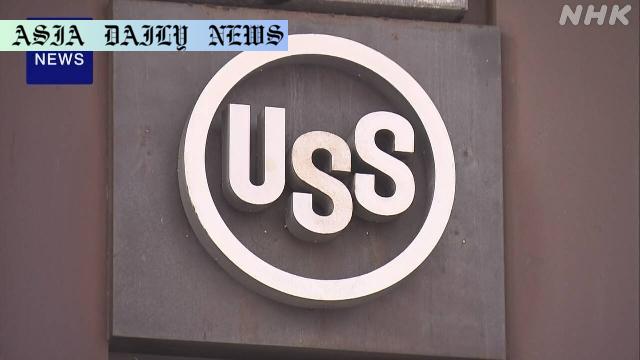US Steel: US citizens now hold majority in the expanded seven-member Board of Directors following new appointments.
- US Steel appointed three new independent US directors.
- US citizens now form the majority on the seven-member board.
- Changes align with a government-issued ‘golden share’ for national security provisions.
- The US government retains veto power over key management decisions.

Introduction of US Steel’s Revamped Board
Nippon Steel and US Steel have undertaken a significant step to enhance transparency and align with national security agreements by appointing three independent US citizens to the US Steel Corporation’s board. This transformation ensures that US citizens now hold a majority on the expanded seven-member board. The announcement, made jointly by Nippon Steel and US Steel, reflects their commitment to fostering a secure and transparent business environment while aligning with critical government regulations.
Details of New Appointees
The new appointees include individuals with extensive backgrounds and proven expertise in their respective domains. Retired Admiral Timothy J. Keating brings with him decades of experience in national security, Robert J. Stevens, the former CEO of Lockheed Martin, possesses a deep understanding of corporate leadership, and John M. Donovan, the former CEO of AT&T Communications, carries a profound knowledge of communication and technological advancements. These prominent figures join Dave Burritt, CEO of US Steel, who was previously the only US citizen serving on the board.
Strategic Impact of a US Majority
This shift, ensuring a US citizen majority, aligns with a national security agreement entered into in June between Nippon Steel, US Steel, and the US government. The inclusion of a majority of US citizens on the board aims to safeguard critical national interests. Moreover, the government’s issuance of a ‘golden share’ provides veto power over key management decisions, such as further board appointments. This arrangement highlights a balanced collaboration between international business ownership and national security priorities.
National Security and Governance
The ‘golden share,’ held by the US government, serves as a strategic tool to reinforce oversight over essential processes within a major steel corporation crucial to US infrastructure and defense. Additionally, the agreement allows the government to replace any of the three independent US directors if needed. Nippon Steel’s compliance with these measures not only underscores their commitment to abiding by regulations but also reinforces trust in their operations within a critical industry.
Conclusion
The restructuring of US Steel’s board to include a majority of US citizens, particularly those with strong backgrounds in national security and corporate leadership, marks a positive shift in the corporation’s governance. With the US government’s active role, this measure ensures the alignment of industrial ambitions with national security priorities. It represents a step forward in achieving balance between international business operations and sovereign regulatory oversight. This decision sets a precedent for other industries where strategic collaboration between stakeholders and government can align with broader national interests.



Commentary
Strengthened Governance at US Steel
The addition of three accomplished US citizens to US Steel’s board of directors is a commendable move that reflects the company’s alignment with national interests. With prominent figures such as Retired Admiral Timothy Keating, Robert Stevens, and John Donovan joining the team, the restructuring underscores the importance of leadership that prioritizes security, innovation, and robust management practices. This shift ensures that US Steel remains an asset to the nation’s infrastructure and defense sectors while advancing its corporate goals.
Balancing Business and National Needs
The introduction of the ‘golden share’ is a strategic decision that demonstrates how private companies like US Steel can work constructively alongside government authorities. By granting veto power over critical decisions, the US government ensures that international ownership does not compromise national security interests. Such a balanced governance model is crucial in industries integral to the country’s strategic operations and could serve as a model for similar industries.
Reflections on Broader Implications
From a broader perspective, this move sets a precedent for foreign-owned companies operating within critical industries to embrace governance models that prioritize the host country’s regulatory and security concerns. Nippon Steel’s proactive approach to structural adjustments is exemplary, reflecting how international collaboration and compliance can coexist without undermining corporate growth. The involvement of prominent leaders strengthens US Steel’s commitment to uphold the nation’s values and economic priorities.
A Step Toward Resilient Industrial Policies
In the long term, such measures enhance resilience within the US industrial framework. By involving experienced US citizens on the board and establishing a reciprocal relationship between private enterprises and state authorities, US Steel is paving the way toward industrial policies that actively integrate commercial success with national safeguarding. This decision will likely instill greater confidence among stakeholders and citizens alike, reassuring them of the company’s commitment to secure and ethical business practices.